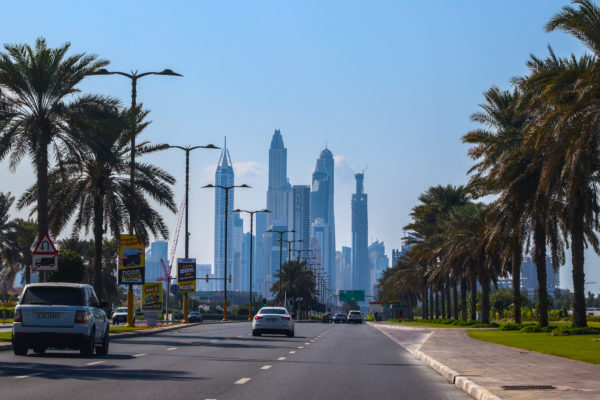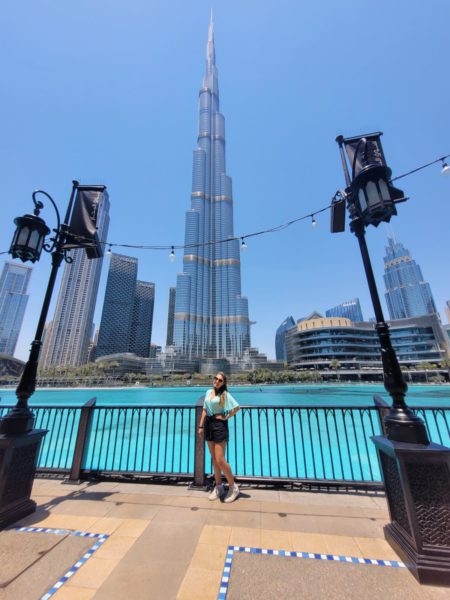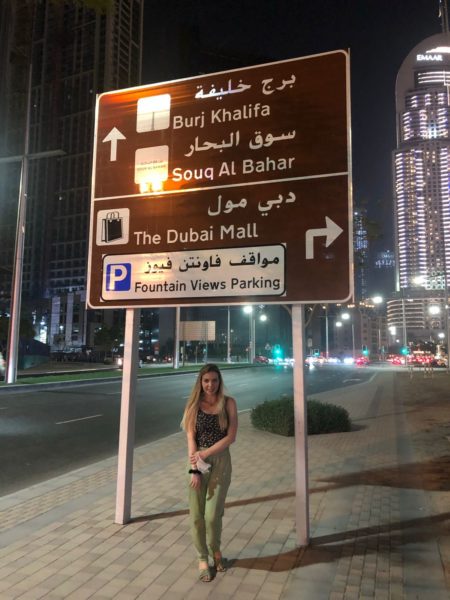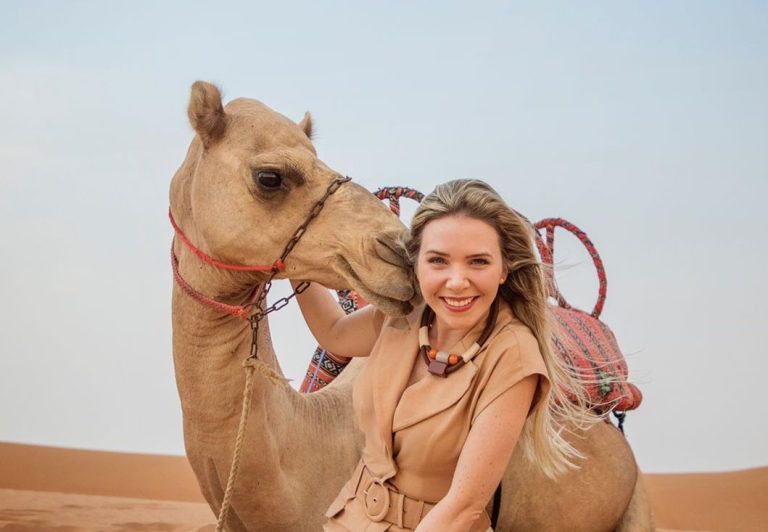São Paulo – Every year, the number of Brazilians who wish to study and work abroad increases. This year, 75% of Brazilians said they wanted to study or work in another country, according to a Brazilian Educational & Language Travel Association (BELTA) survey.
Despite not appearing in the top positions of traveler’s destinations, Dubai, in the United Arab Emirates, has been chosen by many. “Dubai is one of the newest places in our portfolio of destinations for Brazilians to work and study. It gained visibility during the pandemic because it virtually did not close its borders. A good structure was set up to fight the pandemic, and this gained prominence,” explained Carolina Krobath, product manager at CI Intercâmbio exchange agency.

In the UAE, youth and adults learn English during the language course and even have the opportunity to practice the language with people from all over the world. In addition, the ease of obtaining a study and work visa has been a decisive advantage for those heading to the country’s biggest city.
“There are no prerequisites to obtain a study visa. While to study in Ireland, a person needs to show financial guarantees, in Dubai, there is no such need. Students just need to send a photo and copy of the passport, and the visa will be approved,” explained Renata Castro, exchange consultant at TravelMate Intercâmbio agency.
“Once you find a job, you can get a work visa. With this visa, you can live permanently in the UAE. Any employer knows that to hire, they will have to give them a work visa because most people are foreigners,” said Castro, referring to the large percentage of foreigners who live in the Gulf country.
Castro, who helps Brazilians study in the Emirati city, has worked on exchange programs for 18 years and lived in Dubai for nine months. “When it comes to working in Dubai, initially, it’s easier to get a job in the hospitality sector. To get a job, workers must have at least an advanced level of English. Because of the ease of work visas, the number of immigrants in Dubai has increased, and consequently, competition for positions too.”
Castro said, compared to the first time she lived in the city, in 2015, she noticed the number of immigrants in Dubai has tripled. Indians are among the main demographic, and many Russians have also sought the destination because of the war.

In addition to the ease of obtaining a work visa, Castro explained the possibility of working several hours has also attracted exchange students to the region. “Several of our students managed to find a job along the same path. Exchange students generally go with a student visa, and after getting a job, while still taking the language course, employers would change the visa status from student to work visa.”
Salaries vary significantly in positions such as waiter, for instance. According to the exchange consultant, salaries can range from AED 2,500 to AED 11,000 (about USD 680 to USD 3,000 at the current rate), including the monthly payment plus tips. Experience can be the biggest differentiator when it comes to salary.
“To find a job with a good salary, it is essential to have an advanced level of English and experience in the field. If a person already has years of experience as a waiter, might be able to find a job more quickly than someone who does not have an intermediate level of English, for instance. If you have fluent English, your chances of entering the job market increase,” said Castro.
Before choosing Dubai, it is crucial to see if the city’s style suits your lifestyle. “You should choose the destination if you really like summer and are a party animal. There are events here 24/7. I have never seen anything like it anywhere else in the world. The exchange student must also like the sun and beach style,” said the exchange consultant.
Choice of exchange
Going on exchange has been chosen as an alternative to learning English and working abroad for many years. From 2019 to 2022, there was a 30% increase in searches by Brazilians for exchange programs, according to data from a survey by the Student Travel Bureau (STB), a consulting firm specializing in international education.
According to information from a BELTA survey, 15.4% of people want to go on exchange in the second half of this year, 28.6% intend to go in the first half of 2024, 21% of respondents plan to study abroad in 2025 or later, 60% of exchange students are women and most travel solo.
Vanessa Furuli (opening picture), a 35-year-old event analyst, is among those who dreamed of studying abroad. After spending her honeymoon in Dubai in September 2021, the São Paulo native decided to return as a student the following year.

“I have already visited 14 countries, and the first time I visited Dubai, I fell in love with the possibility of living there. I always considered visiting the region, but before traveling there, I thought it was an impossible dream because I thought everything was expensive and I would need to ride a Ferrari. Yes, there is this whole luxury part, but there is also the possibility of living in a peaceful place.”
According to the professional, safety is among the main advantages of living in the Gulf city. “Sometimes, I would return from the course at 11 pm by metro, and until I reached my destination, I would need to walk another 20 minutes. During this period, I walked around calmly with my cell phone in hand, talking to my family here in Brazil. Women can also walk calmly on the street without being harassed.”
After her first study exchange, where Furuli was accompanied by her father, she returned in 2022 to study alongside her husband. For the events analyst who dreams of getting a job to live in Dubai, the only disadvantage there is the hot weather.
“On my honeymoon, I felt very hot during the day. It was not pleasant at all. In the summer, we had days with 44º C that felt like 50º. Therefore, something that no one can abide, for example, is to walk on the streets. I suffered a lot because the climate in São Paulo is very different. But everywhere I went, whether it was a supermarket or a shopping center, there was air conditioning, so the heat was controlled.”
Special report by Rebecca Vettore for ANBA
Translated by Elúsio Brasileiro




